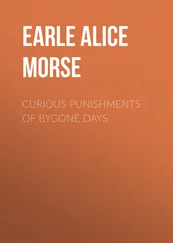Emma Marshall - Her Season in Bath - A Story of Bygone Days
Здесь есть возможность читать онлайн «Emma Marshall - Her Season in Bath - A Story of Bygone Days» — ознакомительный отрывок электронной книги совершенно бесплатно, а после прочтения отрывка купить полную версию. В некоторых случаях можно слушать аудио, скачать через торрент в формате fb2 и присутствует краткое содержание. Жанр: foreign_prose, на английском языке. Описание произведения, (предисловие) а так же отзывы посетителей доступны на портале библиотеки ЛибКат.
- Название:Her Season in Bath: A Story of Bygone Days
- Автор:
- Жанр:
- Год:неизвестен
- ISBN:нет данных
- Рейтинг книги:4 / 5. Голосов: 1
-
Избранное:Добавить в избранное
- Отзывы:
-
Ваша оценка:
- 80
- 1
- 2
- 3
- 4
- 5
Her Season in Bath: A Story of Bygone Days: краткое содержание, описание и аннотация
Предлагаем к чтению аннотацию, описание, краткое содержание или предисловие (зависит от того, что написал сам автор книги «Her Season in Bath: A Story of Bygone Days»). Если вы не нашли необходимую информацию о книге — напишите в комментариях, мы постараемся отыскать её.
Her Season in Bath: A Story of Bygone Days — читать онлайн ознакомительный отрывок
Ниже представлен текст книги, разбитый по страницам. Система сохранения места последней прочитанной страницы, позволяет с удобством читать онлайн бесплатно книгу «Her Season in Bath: A Story of Bygone Days», без необходимости каждый раз заново искать на чём Вы остановились. Поставьте закладку, и сможете в любой момент перейти на страницу, на которой закончили чтение.
Интервал:
Закладка:
"Here is my brother Alex!" Caroline Herschel said. "I will refer the matter to him. This lady, Alex, wishes to become a pupil on the violin."
"And to sing also," Griselda said eagerly.
"It can be arranged certainly. I will let you know more, madam, when I have consulted my brother."
"There are loud voices below, Alex. Is anything amiss?"
"Two gentlemen have had an unseemly wrangle," Alex said, "and in the midst Dr. Watson arrived, and a poor child begging. It is over now, and your chair waits, Miss Mainwaring."
CHAPTER V.
GRISELDA! GRISELDA!
When Griselda went down to the little lobby, she found Mr. Travers with a flushed and excited face, and Mr. Herschel trying to calm him.
"Take my word for it, my young friend, there are always two necessary to make a quarrel, and I should beware of yonder dandy, who bears no good character."
"I will take your advice as far as in me lies, sir; but if he ever dares to speak again, as just now – in the presence of others, too! – to dare to speak lightly of her – I will not pick the quarrel, but if he picks it, then I am no coward."
Dr. William Watson, who had come for a second time that day to visit the "moon-gazer" of the night before, had been a somewhat unwilling witness of the high words which had passed between Sir Maxwell Danby and Leslie Travers, and now seemed impatient to be taken upstairs to inspect the process of grinding and polishing the reflector for great twenty and thirty foot mirrors, which was then achieved by persistent manual labour.
Dr. William Watson was a Fellow of the Royal Society, and had come to invite Mr. Herschel to join the Philosophical Society in Bath, which invitation he accepted, and by this means came more prominently before the world.
Mr. Travers led Griselda to her chair, and as the boy lighted the torch at the door – for it was quite dark – a small and piteous voice was heard:
"Oh, madam! cannot you do something for us? I heard Mr. Herschel was kind, but he is hard and stern."
"Mr. Herschel never gives alms," Leslie Travers said; "be off!"
"Nay, sir; wait. The child looks wretched and sad. What is it?" Griselda asked.
"Oh, madam! my father was engaged to play at the theatre, and he has fallen down and cannot perform the part. Mr. Palmer is hard, so hard, he says" – the child's voice faltered – "he says it was drink that made him fall – and he has no pity; and we are starving."
The group on the steps of that house in King Street was a study for an artist. The shuddering, weeping child; the stolid chairman; the link-boy, with the torch, which cast a lurid light upon the group; the young man holding the hand of the tall and graceful lady, hooded and cloaked in scarlet, edged with white fur; then the open door behind, where an oil lamp shone dimly, and the maid's figure, in her large white cap and apron, made a white light in the gloom. It was a picture indeed, suggestive of the sharp contrasts of life, and yet no one could have divined that in that scene lay concealed the elements of a story so tragic and sorrowful, yet to be developed, and then unsuspected and unknown.
"Wait," Griselda said. "Tell me, child, if I can help you."
"We are starving, madam, and my father is so ill!"
"I have no money," Griselda exclaimed. "Mr. Travers, if you can help her, please do so."
"It is at your desire, for I can refuse you nothing; but I know Mr. Herschel is right, and that alms given like this, is but the throwing of money into a bottomless pit."
As he was speaking the young man had taken a leathern purse from the wide side-pocket of his blue coat, and had singled out a sixpence and a large heavy penny with the head of the King in his youth upon it – big old-fashioned penny-pieces, of which none are current now.
Mr. Travers put the money into Griselda's hand, and she held it towards the child.
"What brought you to Mr. Herschel's?" she asked.
"Brian Bellis sings at the Octagon every Sunday; he told me Mr. Herschel was kind, but he was wrong; it is you who are kind."
"Tell me where you live, and I will come, perhaps; or at any rate send someone to give you help."
"We live in Crown Alley; but Brian Bellis will tell you, madam. Oh!" the child said, "you are beautiful as the princess in the play; and you are good too, I know."
"Come, be off, you little wretch. We don't care to stay here all night for you, and orders waiting," said one of the chair-men.
"Will you find out Brian Bellis for me? Will you discover from Miss Herschel if the tale is true – now – I mean now? I will pay you extra for waiting," Griselda said to the men.
"Can't wait to obleege you, miss; if you don't step in we shall have to charge double fare."
Then Griselda got into the chair; the lid was let down with a jerk; the men took up the poles, and set off at a quick trot to North Parade.
The child was still standing on the doorstep, and Leslie Travers said:
"You must not stand here. The lady will keep her promise, you may be sure. Now then!"
The child turned sorrowfully away, and the click of her pattens was heard on the stone pavement getting fainter and fainter in the distance.
Leslie Travers was thoughtful beyond the average of the young men of his type in those days, and as Miss Herschel's servant shut the door – much wondering what all the delay had been about – he gathered his loose cloak round him, and walked towards the house his mother had taken in King Street, pondering much on the inequalities of life.
"Some star-gazing," he thought, "and with their chief aims set above the heavens; some singing and dancing; some working mischief – deadly mischief – by their lives; and some, like that poor child, dying of starvation. Yes, and some are praying to God for the safety of their own souls, or thanking Him that they are safe, and forgetting, as it seems, the souls of others – nay, that they have souls at all! And others, like that angel, whose face is like the fair lady of Dante's dream, or vision, seem to draw the beholder upward by the very force of their own purity and beauty."
This may sound very high-flown language for a lover, but Leslie Travers lived in a day of ornate expression of sentiment, as the effusions in Lady Miller's vase at Batheaston abundantly testified.
Leslie Travers was the son of a Lincolnshire squire, who owned a few acres, and had lived the isolated life of the country gentlemen of those times.
Leslie was the only son, and he had been sent to Cambridge; but his health failed before he had finished his course there, and he had returned to his old home just in time to see his father die of the ague, which haunted the neighbourhood of the fens before any attempt at proper drainage had been thought of, much less made.
Mrs. Travers was urged to shut up the Grange – which answered very well to the description of a moated Grange of a later time – and resort to Bath, for the healing waters might take their effect on her son's health. Mrs. Travers had now been resident in Bath for a whole year, and her figure in widow's-weeds was familiar in the bath-room waiting for her son's appearance after his morning douche.
But not only was her figure familiar in the bath-room, there was another place where she constantly took up her position, and where she could not persuade her son to follow her, and that place was the chapel which had been built by Selina, Countess of Huntingdon.
Mrs. Travers was at this time greatly exercised in mind about her son. Since his health had improved, he had entered more into the gaieties of the city of Bath, and made friends of whom she could not approve. The Pump Room was a place where many idlers and votaries of fashion found a convenient resort after the morning bath; and here many introductions were exchanged between the new-comers and those who had been frequenters of Bath for many previous seasons. The present master of the ceremonies did not hold the sway of his famous predecessor; but outward decorum was preserved; and it was in the master's power to refuse or grant an introduction if it was objected to by any parent or guardian.
Читать дальшеИнтервал:
Закладка:
Похожие книги на «Her Season in Bath: A Story of Bygone Days»
Представляем Вашему вниманию похожие книги на «Her Season in Bath: A Story of Bygone Days» списком для выбора. Мы отобрали схожую по названию и смыслу литературу в надежде предоставить читателям больше вариантов отыскать новые, интересные, ещё непрочитанные произведения.
Обсуждение, отзывы о книге «Her Season in Bath: A Story of Bygone Days» и просто собственные мнения читателей. Оставьте ваши комментарии, напишите, что Вы думаете о произведении, его смысле или главных героях. Укажите что конкретно понравилось, а что нет, и почему Вы так считаете.












